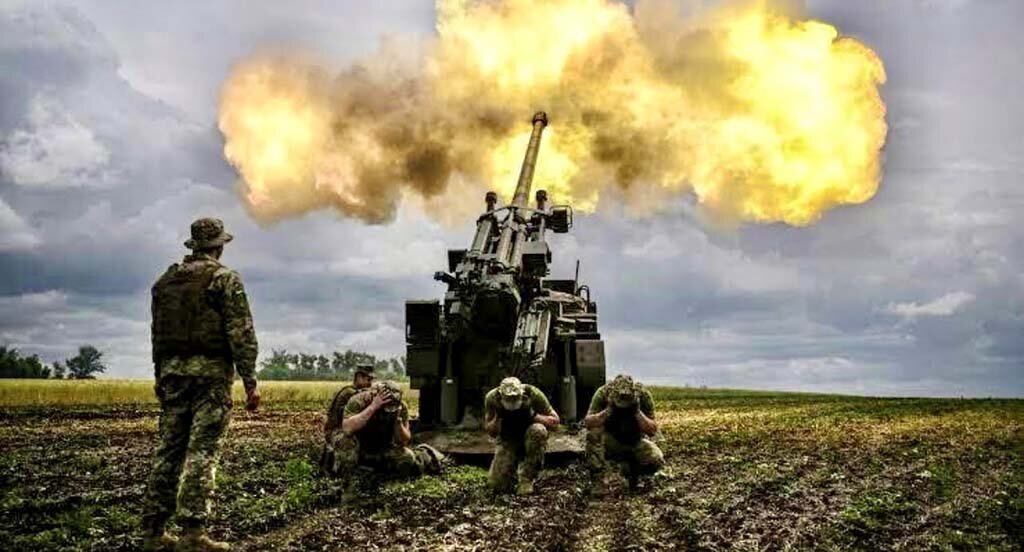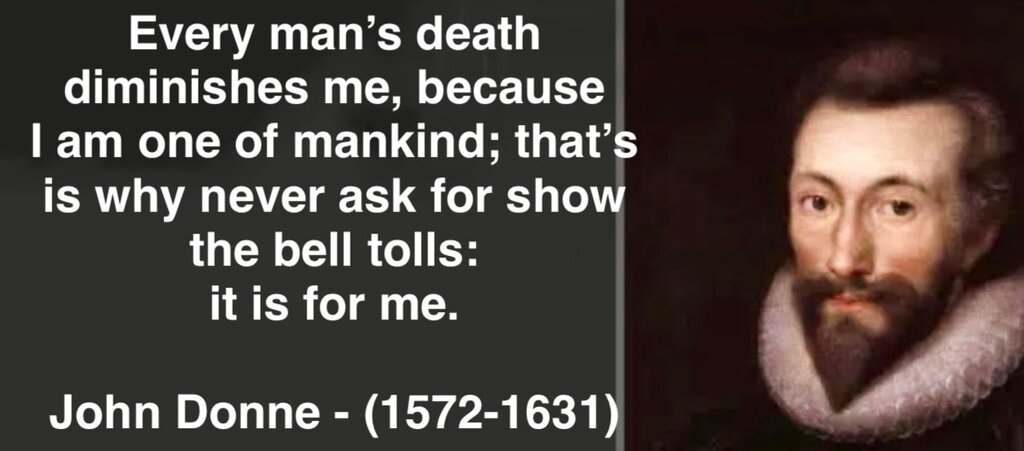Sexta-feira, 4 de julho de 2025 | Porto Velho (RO)
Quinta-feira, 3 de julho de 2025 - 17h11

Algorithms for conflicts analyzed by Artificial Intelligence may soon
become an essential tool for finding solutions and deterring unjustifiable
warmongering folly.
Artificial Intelligence (AI) in the mediation and resolution of international
conflicts is based on reason and logic.
This field of computer science has been developing systems capable of
assisting in the mediation and resolution of disputes between nations, whether
in bilateral or multilateral contexts. The potential offered by AI is
significant as a facilitating tool for resolving disputes more quickly,
efficiently, and accessibly—especially by helping all parties involved to
achieve fairer and more satisfactory agreements.
However, strict adherence to ethics will be crucial to ensure AI is
applied in a responsible and transparent manner, serving both nation-states and
their societies swiftly and effectively.
In less than a year, ChatGPT has become widely known, reflecting the
astonishing advances in AI-powered software tools, particularly generative AI
models.
With this progress, many have predicted that AI will revolutionize warfare. At
this stage of development, the limits of what is possible are still being
explored—but the military response to AI technology is already undeniable.
The
Fault of the “Rational Ones”
The theory of “intelligentized” warfare and the integration of AI is central to the
modernization plan of the PLA (People’s Liberation Army). Jen Easterly, Director of the U.S. Cybersecurity and
Infrastructure Security Agency, warned that artificial intelligence could
become “the most powerful weapon of our time.” AI will require a code of ethics
to be followed by its creators—humans—who, ultimately, are responsible for the successes or failures of this
mad invention. Lacking omniscience, they have no authority to foresee the
future.
Wars arise from a range of causes: between nations, within the same nation,
or between different ethnic groups—seeking to impose supremacy or defend
material, geopolitical, or ideological interests through force and violence.
Sometimes, war is even framed as a divine instrument to punish those who break
a covenant or violate sacred laws.
Armed conflicts are sparked by various motives: religious disputes,
political and economic interests, territorial ambitions, ethnic rivalries, and
other unjustifiable or irrational reasons.
Too
Many People Dying
The number of lives lost in recent military conflicts and global wars
has surged in 2024.
A study by the International Institute for Strategic Studies (IISS) shows that
approximately 200,000 people have died and millions have been displaced across
more than 130 armed conflicts worldwide.
The UN Security Council held an open debate on the protection of
civilians in armed conflict. The report presented by the Secretary-General
described the state of civilian protection in 2023 as “extremely grim.” According to the UN, at
least 33,443 civilians died in armed conflicts in 2023—a 72% increase from
2022. The proportion of women and children killed has doubled and tripled,
respectively, compared to the previous year—something inconceivable to even the
most basic sense of reality.
Wars bring nothing but setbacks and the foolish illusion of victory, at
the expense of human lives—undeniably one of the most cruel and devastating
consequences.
This happens daily, on a massive scale. Defenseless innocents are sacrificed,
young soldiers die on the battlefield, and indiscriminate violence strikes
civilians directly—especially women and children.
Among the main causes of military conflict are the pursuit of
territorial gains or competition for resources; the quest for economic
advantages; religious discord; blind nationalism; revenge; revolutions; civil
wars; and defensive warfare in its preventive form.

Perspectives
from Great Philosophers
Niccolò Machiavelli (1469–1527),
Renaissance philosopher and Italian diplomat, believed war was the central axis
of politics. All institutions, no matter how peaceful they may seem, exist as a
function of war’s consequences or anticipations.
Sigmund Freud (1856–1939), Austrian neurologist and father of psychoanalysis, argued
that wars would only be avoided “if humanity united to establish a central authority, endowed with the
right to arbitrate all conflicts of interest with impartiality and justice.”
Albert Einstein
(1879–1955), German-born physicist and mathematician, believed that “there is no rational
reason to wage war.” All nations, conceptually, favor peace.
He also famously stated: “I don’t know what weapons
will be used in World War III, but World War IV will be fought with sticks and
stones.”
Karl von Clausewitz (1780–1831)
defined war as “the continuation of politics by other means.”
Catastrophic
Environmental Impact
Caused by the surrender of reason to the prevalence of petty and insane
interests of political elites—irresponsible and mentally unwell—wars bring
irreparable harm and a cost far greater than any possible gains. Beyond the
high and unnecessary toll on human life, military conflicts have long-lasting
environmental consequences: they harm biodiversity and ecosystems, and cause
air, soil, and water pollution.
In fact, aside from satisfying some insane vanity profitable for the
immoral industry feeding off the misfortunes that cruelly punish the most
vulnerable inhabitants of the planet, there is no rational justification for
war. On the contrary, its harmful effects on humanity are vast and far-reaching,
affecting multiple sectors of society and the world at large. Wars leave behind
a trail of physical, emotional, and socioeconomic destruction, deeply affecting
both developed societies and the global community.
Total
Lack of Moral Support
Though war has been a part of human life since time immemorial, across
all civilizations—despite the immense suffering and misery, and the shameful
number of dead, wounded, mutilated, displaced, starving, and refugee
populations it inevitably brings—we must admit that war is, unfortunately,
inherent to human nature. Despite the efforts of the international community,
such as the United Nations Charter, to limit—or even eradicate—it, war will
continue to exist. Due to human character and an unextinguished primitive
violent instinct, war remains an obvious source of moral issues, incompetence,
and lack of political will to prevent it.
According to pacifist theorists, no war has the slightest moral
justification, and whatever presumed benefits may arise from it are infinitely
smaller than the harm it causes—violating absolute duties such as the
commandment not to kill one’s fellow humans.
The theory of fair war represents, for instance, Christianity’s response to the moral problem of
warfare. At its core, this theory claims that war, contrary to what realists
believe, falls under the scope of morality and may, at times, be justified.
Thus, the theory stands in opposition to both realism and pacifism.
In our time, due to the emergence of nuclear weaponry, the American preventive
intervention aiming to destroy Iran’s uranium enrichment infrastructure is seen as realistic, as it prevents
a nation dominated by extremism, radicalism, and religious madness from
obtaining the means to destroy Western democracies.
The only justifiable type of war would be one fought for just
causes—with the purpose of freeing minds for a true evolution that would lead
humanity to higher levels of consciousness, aiming to eradicate chronic misery,
hunger, and the archaic legacy that keeps millions of human beings chained to
ignorance, denied the intellectual conditions needed to construct their own
understanding of reality—free from any kind of labels—under the guidance of
common sense.
Faith
as a Profitable Illusion
Religiosity has been turned into a lucrative business, thriving on the
sale of improbable, phantasmagorical illusions.
It is worth noting that 89% of the planet’s population claims to believe in God or in the existence of some
imaginary higher power. According to a 2023 survey conducted by the Ipsis
institute across 26 countries, only 2.3% of the global population identified as
atheist.
If only the so-called religious respected one another and truly
practiced the teachings they profess, defend, and are even willing to kill
for—to impose the truths they believe in—then the global reality would be one
of inclusion, justice, and complete peace.
But instead, the prevalence of greed and individualistic selfishness—driven by
humanity’s shamefully
underdeveloped and perverse instinctual nature—has turned the world into a true
hell, hindering humanity’s ascension.
Would it be reasonable to question what is wrong with the majority of
humanity that claims to worship and defend their gods? Are they truly
practicing what they preach and claim to believe in—or merely using God’s name to provoke conflict, in a shameful
display of depleted discernment? Could it be that the tiny atheist minority is
really to blame for all this misery?
Peace
Achieved in the Middle East Thanks to Donald Trump’s Meritorious Initiative
Without the firm resolve and bold, courageous leadership of the Trump
administration, we could now be vulnerable—and, in the near future, hostages to
Islamic terrorism.
The world would be living under the threat of destruction unless it submitted
to absurd and archaic belief systems. Therefore, the American preemptive
military action ordered by President Trump was legitimate, necessary, and
precise. It did not result in the death of any Iranian civilians or military
personnel. The damage to the targeted uranium processing facilities can be
accurately assessed only after an inspection by qualified personnel.
Nevertheless, Iranian authorities have stated that the damage was significant.
The fact is that without the competent and effective demonstration of
U.S. military force, peace would be out of reach, and the planet would be
drowning in even greater uncertainty.
The President fully deserves recognition for having acted like a true
statesman—with courage and aiming at saving the lives of thousands of human
beings and animals who could have been reached by an unexpected atomic
explosion, with no chance of survival. More importantly, he secured peace in
the region, easing long-standing fears of the destruction pursued by that
Islamic nation for generations.
It is worth noting that in Latin-American culture, the theory of
preemptive action is widely practiced, across all social classes. For instance,
when a neighbor threatens to kill another, the one who is targeted may act
first and take him out preventively—which seems, under certain circumstances,
like a reasonable existential choice.
Even so, there is no certainty that the Iranians did not move their enriched
uranium, supplies, and equipment to other locations—just as Saddam Hussein may
have done before the Gulf War under President Bush.
Critics or sympathizers of totalitarian regimes and enemies of the free
world prefer to antagonize the coalition’s action simply because they didn’t find what they were looking for. Obviously, they had plenty of time to
hide their weapons in anticipation of a preventive strike.
The leadership of the American president has been recognized through
praise around the world. “Congratulations and thank you for your decisive action in Iran. That was
truly extraordinary—it’s something no one else dared to do,” declared NATO Secretary-General
Mark Rutte during the summit held in The Hague this week.
Wars
Happen in the Absence of UN Authority—Mostly Due to Diplomatic Incompetence
The UN was created to prevent new wars, but as we can see, it has proven
to be ineffective. It remains a legitimate and necessary multilateral body
under the philosophical principles stated in its charter, but without the
coercive power and financial support of the United States, the UN exists merely
as a burdensome, inefficient abstraction. If it were a credible and respected
organization among its member states, no war would have occurred since its
foundation.
In practice, the Organization has served as a dumping ground for
political appointees and protégés of
questionable qualifications—nominated by corrupt governments that infest it
with political and ideological sectarianism. This explains its indifference to
examining serious proposals submitted to them, aimed at solving the problems
afflicting humanity. Its administrative structure is costly and ineffective, in
addition to its evident lack of credibility to enforce the very resolutions it
approves.
Civic
Action as a Duty of Conscience
Aware that all of us—as inhabitants of this planet—have a moral responsibility
to exercise citizenship, I submitted two proposals to the UN, which failed to
consider them on their merits. Today, 19 years later, the issues remain
unresolved, still awaiting competence and good will.
The first proposal, regarding environmental preservation, was submitted
in 2006 to then-UN Secretary-General Mr. Ban Ki-Moon and to the United Nations
Environment Programme (UNEP). It suggested an evaluation of the feasibility of
declaring the planet’s sources of potable water—including forest reserves—as World Heritage Sites.
The document also suggested that the UN should classify any action that harms
these essential reserves as universal criminal offenses. Furthermore, it
proposed that UN Peacekeeping Forces be trained and empowered to intervene—when
summoned by member states—for the purpose of helping combat environmental
destruction.
Several media outlets reported on the proposal. Forbes magazine
published an article on December 20, 2006, ABC Eyewitness News did so on
December 24, and Telemundo, a Hispanic TV channel, covered it on national
television on December 23 of the same year.
The second proposal, concerning the fight against hunger, was submitted
to the FAO in May 2008, prompted by the alarming food shortages that caused the
death of millions around the world, while tons of food were lost due to
spoilage, expired shelf life, and degradation caused by poor storage
conditions.
I thus proposed to the Executive Director of the United Nations World
Food Programme (WFP) the adoption of effective measures to encourage both
governments and the private sector to build large-scale food dehydration
facilities.
These would serve emergency needs in cases of severe economic crises, armed
conflicts, or natural disasters—such as tsunamis, floods, droughts, hurricanes,
and earthquakes. This proposal was also shared with the U.S. government,
requesting an evaluation of the possibility of using freeze-drying technology
to expand strategic food reserves.
Both proposals were officially recorded and defended in a speech before
the plenary of the Brazilian Federal Senate by Senator Álvaro Dias, and were
published in the Diário Oficial do Senado
Federal on April 14, 2021.
The Ongoing Danger of Nuclear Aggression Is Real
We must not ignore that Iran is a wealthy nation with enough resources
to acquire, from its allies Russia and China, a few bombs presumably
manufactured during the era of the former Soviet Union. A small portion of the
nuclear arsenal has disappeared due to a lack of effective control, and it
would be possible for Iran to purchase such weapons on the black market at a
lower cost than building them from scratch.
Viable
Alternatives Require Reason
If half of the world’s military spending in 2024—which totaled approximately $2.46 trillion
according to official data—were instead directed toward the fight against
hunger, support for agriculture, water resources, and environmental
preservation, we would be on the right path to reversing a shameful reality.
This is a reality that demands responsibility, competence, and political will
from those who bear the moral and professional duty to find solutions rather
than create problems.
Such a reality calls for a shift in mindset, especially considering that
all of us are merely passing through this life for a brief moment—something
many of those who turn their backs on reason and the planet’s harmonious development stubbornly choose
to ignore. It stands in stark contrast to the data found in the United Nations
Report on the State of Food Security and Nutrition in the World (SOFI 2024),
which highlights the severe rise of food insecurity across all regions of the
planet plagued by hunger.
Guided by impartial reflection, this text seeks to share the author’s impressions and to relieve a sense of
powerlessness in the face of so much senselessness and obscurity—symptoms of
the chronic ignorance and lack of commitment among global elites to the
awareness that change must come from everyone, so that life for future
generations may be lighter, healthier, and more harmonious.
We are born pure, but the sociocultural and religious systems that shape
us often restrict, manipulate, and hinder our development on various levels.
Within these systems, we learn to hate, to disagree, and to provoke
conflict—not because of inherent malice, but due to a lack of ability to use
the intelligence that should elevate us above non-rational beings. And yet, it
is they—devoid of discernment—who often offer us, day after day, precious
lessons in peaceful coexistence.
________________
“War is the despicable result of the madness of extremists, fanatics,
cretins, hypocrites, and the unscrupulous who, hiding at a distance in
cowardice, promote the destruction of the planet and the lives of their fellow
human beings; trampling reason, violating ethics, attacking rationality,
causing suffering, sowing death indiscriminately, spreading injustice,
generating misery, banishing conscience, staining dignity—only to, in a
pathetic perception of reality, proclaim themselves victorious, in a complete
inversion of civilizational values.”
– Samuel Sales Saraiva
 Sexta-feira, 4 de julho de 2025 | Porto Velho (RO)
Sexta-feira, 4 de julho de 2025 | Porto Velho (RO)
Airtags em tênis doados revelam destino real de doação à Cruz Vermelha
Essa notícia publicada por Bruno Bertonzin, em 27/06/2025, relata que um influenciador alemão resolveu usar um AirTag da Apple para rastrear o destin

Logaritmos dos conflitos analisados pela Inteligência Artificial poderão brevemente se tornar uma ferramenta imprescindível para o encontro de soluçõ

O lamentável retrocesso da consciência humana
Fechando os olhos por um segundo, a consciência sobre o tempo se torna uma abstração, que não pode ser compreendida com realismo pela reduzida capac

Um dia na história - Capitão Jairo Saraiva
Meu saudoso pai, Capitão Jairo Saraiva, ao centro, como presidente da secção dos ex combatentes da 2a. Guerra mundial, recepcionando o melhor presid
 Sexta-feira, 4 de julho de 2025 | Porto Velho (RO)
Sexta-feira, 4 de julho de 2025 | Porto Velho (RO)